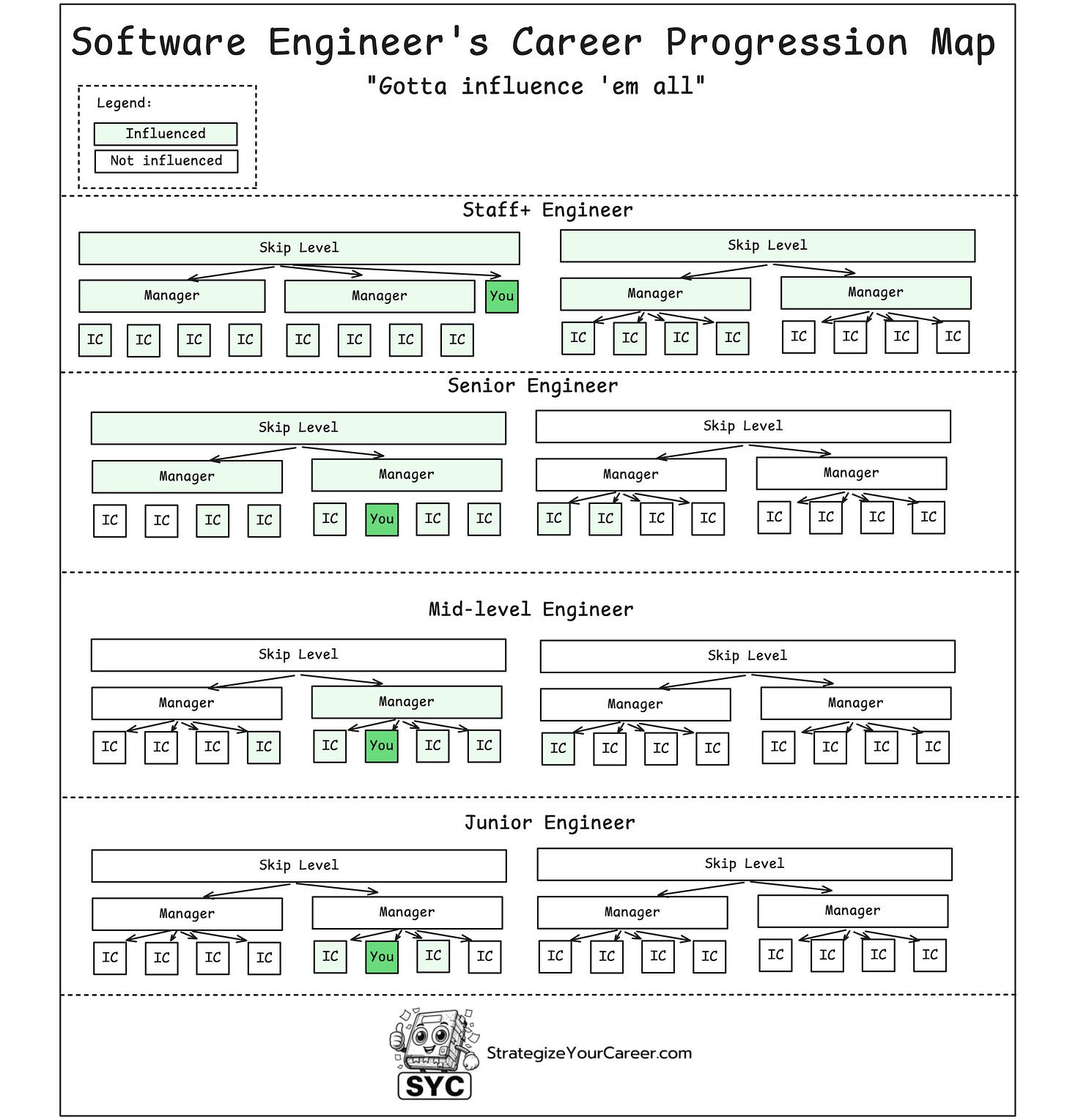🏆You only need 4 promotions: The step-by-step guide from Junior to Staff+ engineer
Stuck in your engineering career? Learn why coding more isn't the answer and how to grow your influence and impact to get promoted at every level.
We've all heard tales of the "10x engineer", a genius who out-produces entire teams. This is a powerful, but dangerously incomplete, myth.
In the real world, the engineers with the fastest, most sustainable growth are not solitary geniuses. The real 10x impact engineers are the ones who make their entire team, and eventually their organization, more effective.
Promotion isn't a reward for working hard. It’s a recognition that your scope of influence has grown. You are being trusted with a larger blast radius.


